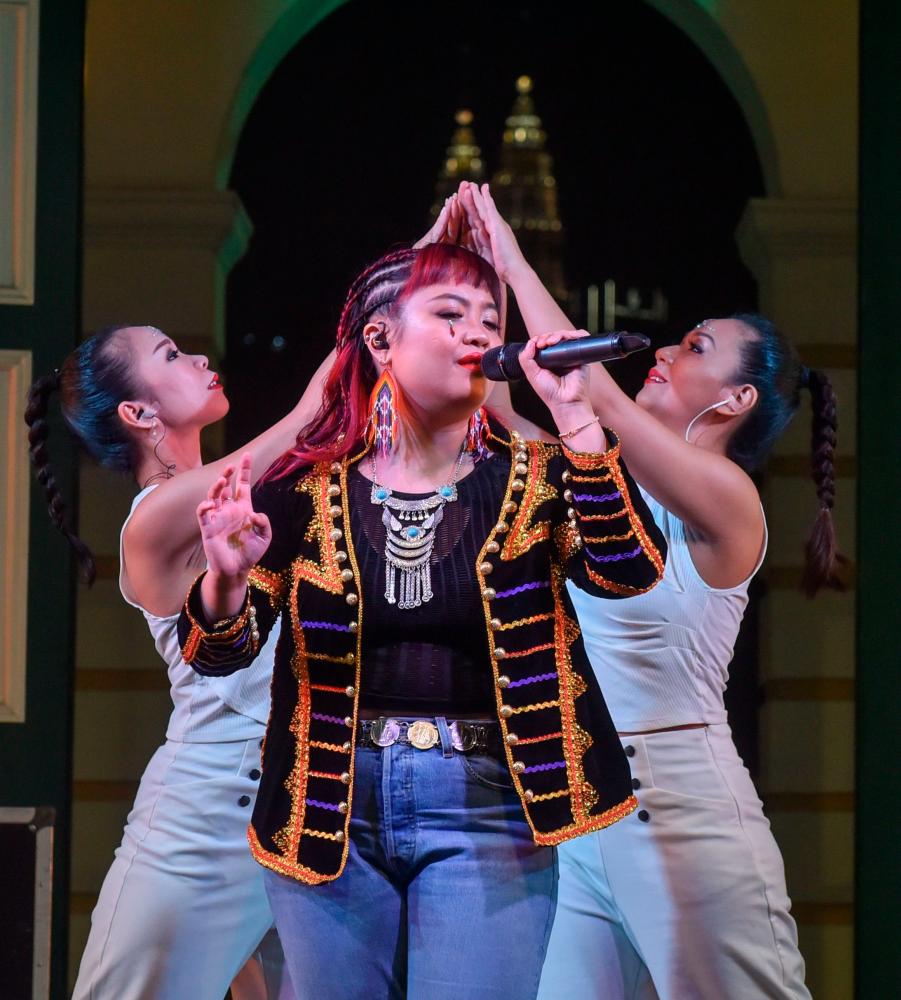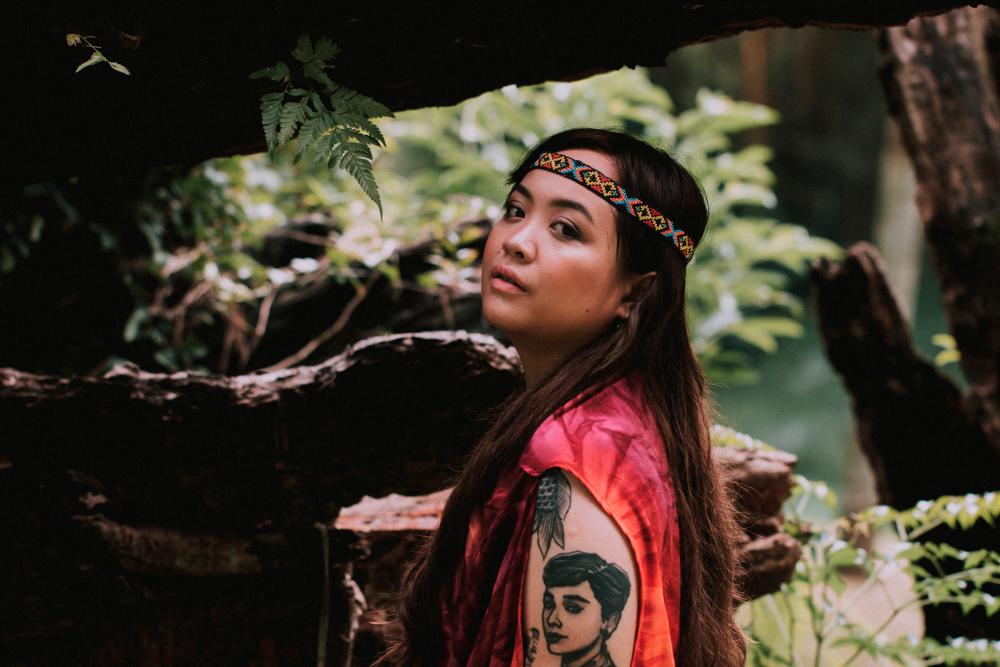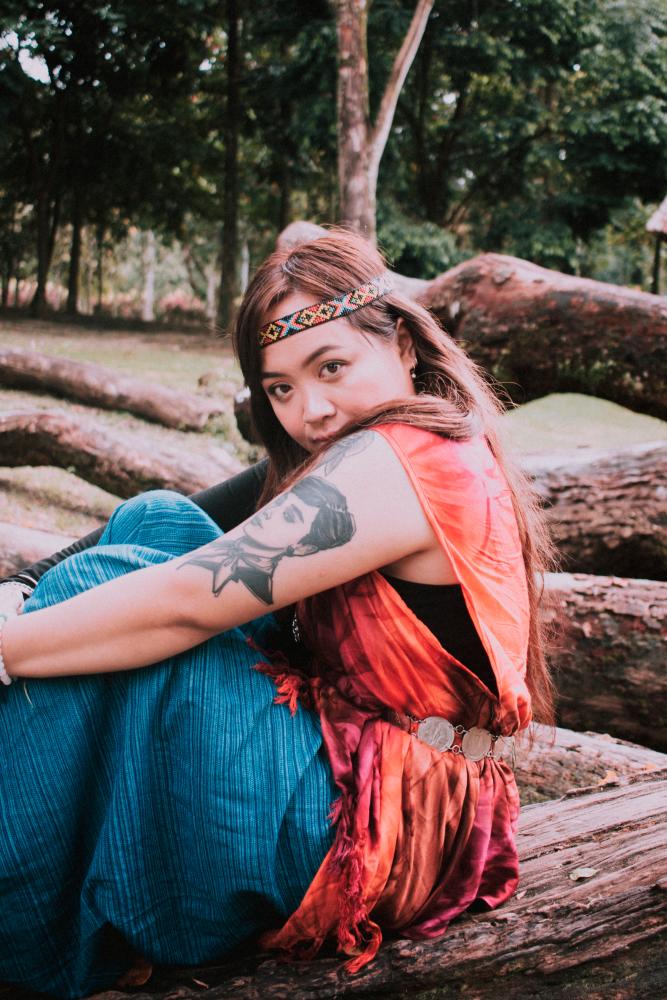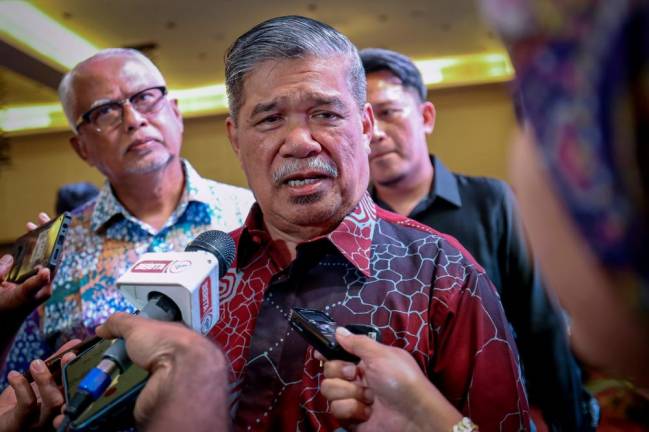MAYABAYU, one of the finalists for the Levi’s Music Project last year, has travelled different roads as a musician – from a folk-country singer to one closer to her ethnic roots.
A Sabah native, Mayabayu is now based in Kuala Lumpur. Growing up in culturally rich East Malaysia, the singer points out that music has always been a part of her life. Her father, whom she idolised, could sing and play the guitar.
“Once I started to delve into songwriting, learning to play an instrument felt like it was the natural thing to do. So I picked up the piano and guitar and started to play by ear,” she said.
When she was still doing her A-Levels, Mayabayu’s first single Honeydew was aired on Hitz FM Kota Kinabalu. That struck a chord in Mayabayu and she realised: “Wow, I can actually do this”.
After graduating with a degree in Public Relations and Event Management, Mayabayu immersed herself in music.
“It has been a while since I returned to my hometown to do music but I still keep up to date with new releases coming out from Kota Kinabalu. Back then, there were many cover artistes as there was not enough original work. That was one of the main reasons I moved to Kuala Lumpur,” she said.
“I chose to remain in Kuala Lumpur because there were more work opportunities for me here. But on my recent trip home, I was happy to notice that the local music scene was starting to flourish, especially in terms of indie artistes releasing new original music.

Changing for the better
After moving to Kuala Lumpur, Mayabayu’s music eventually evolved to reflect her identity.
“As a local musician, you are always encouraged to ‘sound international’ or ‘sound Western’. That is why, in the beginning, I exclusively wrote songs in English and even dabbled in the Country music genre. I didn’t want to be discovered as a Sabahan or a Malaysian at all.”
Mayabayu admitted that the change in her music was not an overnight decision.
“Something in me was crying out. I was beginning to have a case of imposter syndrome and thankfully, that was when I began singing lead vocals for an eight-piece ethno-fusion band called Nadir. The band members came from different music backgrounds and ethnicities, and I was forced to look within me to see what I could contribute as an East Malaysian”.
Saying she is forever thankful with her choice, she explained that the rediscovery of her roots and culture as a Sino-Kadazan was pivotal for her rebirth as Mayabayu.
“I realised I wanted to use my music as a tool for East Malaysian representation in the music industry.”

The road forward
Although each of her journeys into the local music scene was different and personal, Mayabayu said she never encountered difficulties beyond the minor microaggressions any Sabahan would normally experience.
“There were a number of ‘sampan’ and treehouse comments,” she said.
“As a female artiste, there are some expectations to live up to in order to stand out. For me, I have never fit into the public’s perception of what a female musician should look like. I’m not skinny and I have tattoos, so sometimes this works against me when I’m trying to reach a more mainstream audience. All I hope for is that they will look past the image and put music at the forefront.”
“If you listen to my songs, you will realise they are based on self-reflection. As long as I have a quiet space, I can write wherever I am, be it Kuala Lumpur or Kota Kinabalu.
Mayabayu remains steadfast during the current pandemic, which has affected her livelihood in terms of doing live performances.
“I have decided to use this time to write and grow creatively. That is why I feel blessed to be chosen as a participant in the Levi’s Music Project. Thanks to them, I was able to release a trilingual single (English, Malay and Kadazan), O, Sayang, despite financial uncertainties due to the pandemic.”
Mayabayu said her mission now is to learn more about her heritage and traditions and to plan for a new music release.














